How to celebrate a safe and healthy Diwali amidst COVID-19
From saying ‘no’ to firecrackers, considering healthy gifting options to being aware of air quality data, SocialStory brings to you a slew of tips and insights to celebrate a safe and healthy Diwali this year.
Every year, a blanket of smoke envelopes the sky during Diwali. And, most people end up celebrating the festival amidst dangerous levels of air pollution.
One of the main reasons for this is the activity of bursting firecrackers.
Last year, Diwali was observed on October 27. The overall air quality index (AQI) of Delhi stood at 313 at 9 am. But as the day went by, the air quality continued to worsen and at 2.30 pm, it averaged out to be 341. 29. 37 air quality monitoring stations in the National Capital Region displayed their AQI in the ‘very poor’ category or beyond post the festival.

The pollution in Delhi was seen to spike drastically post-Diwali in 2019.
It was not only Delhi which saw a spike in pollution levels. Many other cities including Chennai, Bengaluru, Jaipur, and Lucknow among others breathed unclean air.
Every time a cracker is ignited, a slew of toxic gases such as carbon monoxide, ozone, sulphur dioxide, and nitrogen oxides are released into the atmosphere. Not only does this harm the environment, but also human health. The pollutants particularly tend to affect the respiratory system of individuals and the chances of pre-existing ailments like asthma, bronchitis, and COPD getting exacerbated are increased.

Several state governments have banned firecrackers this Diwali.
Image credit: Rajesh Ram, Unsplash
With the coronavirus pandemic still active, the risk is only bound to increase. Keeping this in mind, the governments of Rajasthan, Odisha, West Bengal, Haryana, Delhi, and Karnataka recently decided to ban the sale of conventional crackers during the festival. Even India’s environmental court, The National Green Tribunal (NGT), has clamped down on crackers in cities where the air quality is below 'poor', citing the link between pollution and COVID-19.
However, this does not mean that people cannot embrace the festive spirit and indulge in revelry. SocialStory got in touch with a few experts to gather tips and insights on celebrating a safe and healthy Diwali.
Saying ‘no’ to crackers
From lighting diyas and lanterns to making colourful intricate rangolis, one can celebrate the festival of Diwali in many ways. So, steering clear of firecrackers is not a difficult task.
Bursting crackers leaves behind carbon and metal particles as well as a lot of harmful chemicals. Since these fine particles do not disintegrate completely, they remain poisonous and trigger infections.
A study by German and Cypriot researchers published as part of Cardiovascular Research in the Oxford Academic states that long-term exposure to pollution could be linked to 15 percent of the COVID-19 deaths across the world. The paper mentioned that “a fraction of COVID-19 deaths could be avoided if the population were exposed to lower counterfactual air pollution levels without fossil fuel-related and other anthropogenic (caused by humans) emissions.”

Dr Jeenam Shah, a consultant chest physician and interventional pulmonologist.
Dr Jeenam Shah, a consultant chest physician and interventional pulmonologist who works with Bhatia Hospital and other healthcare centers in Mumbai, elaborates,
“Firecrackers pose a huge risk to the health and well-being of people at large. One organ that is most affected due to pollution is the lungs. And, considering that COVID-19 too tends to cause damage to the lungs, there is every chance that the symptoms like dry cough and breathlessness might get worse for people who are already infected with the virus,” he says.
“Besides, it can cause complications in the health of the persons who have already recovered from coronavirus,” Dr Shah adds.
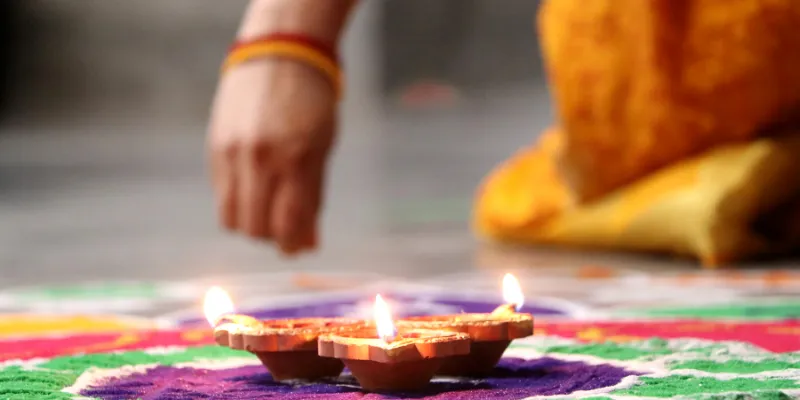
Diyas are a good alternative to crackers during Diwali.
Image credit: Sandeep KR Yadav, Unsplash.
There are various alternatives to crackers that are available in the market today. These claim to have a lesser impact on both environment and public health. While some of these green crackers are made from recycled paper, others are manufactured from eco-friendly materials and balloons.
Another innovation that is gaining popularity is seed crackers. Made from seeds like marigold and white daisies, these can be thrown, sown and sprouted. Known as ‘plantable seed bombs’, they are sold in the form of rockets, bijlee patakas, chakras, laxmi bombs, etc. A Bengaluru-based startup called Seed Paper India is behind these smokeless products.
A few other options are glow sticks, wish lanterns, LED lights, and diyas.
Eating and gifting healthy
Exchanging gifts is an important part of any festival. And, Diwali is no different. Since the coronavirus pandemic has restricted many people from stepping out of their homes, shopping online is one of the best ways to surprise friends and loved ones.
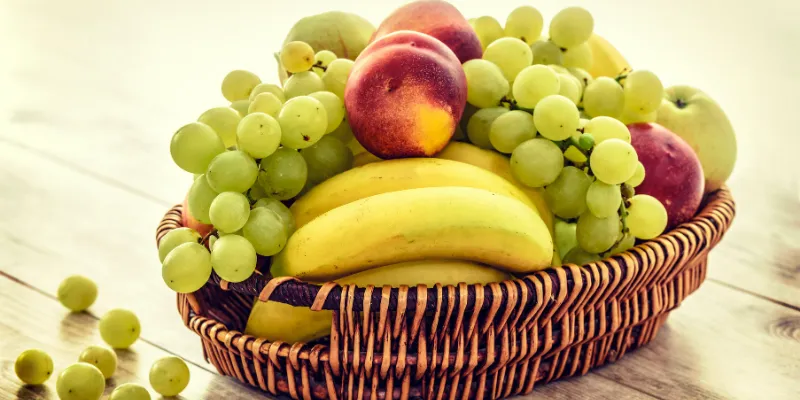
Considering that the pandemic is still prevalent, gifting healthy is important.
Image credit: Photomix Company, Pexels.
With an increased emphasis on boosting immunity and eating healthy, even gifting can be done keeping wellness in mind. Today, a whole range of hampers and gift boxes is up for grabs online – whether it is ladoos made of black rice and nuts, or organic fruits, snacks, and teas.
Kavita Devgan, a renowned nutritionist and health writer, emphasises the importance of gifting healthy this festive season by suggesting a few alternatives.
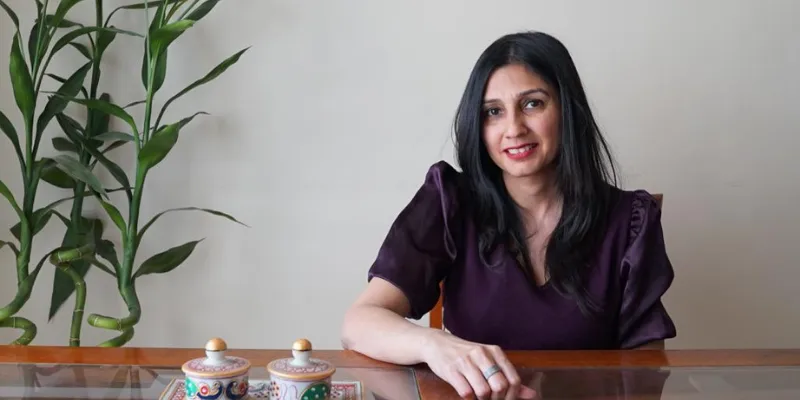
Kavita Devgan, a nutritionist and health writer.
“Gifting what other people need is an art in itself. The pandemic has taught us that health is paramount. So instead of giving away indulgences, other healthier options can be looked at. A few options that could work are nutritious food baskets consisting of honey, exotic spices, roasted seeds and herbs, or just a box of home-made sweets. Even things like low-maintenance indoor plants, garden kits, natural air purifiers, beeswax candles, frisbees, and jump ropes are bound to add value to a person’s overall wellness,” she explains.
Being aware of air quality data
Of the world's 30 most polluted cities, 22 are in India as per the research presented by Swiss-based group IQ AirVisual and Greenpeace.
Every year, a sharp spike in pollution is observed after Diwali and New Year celebrations. The smoke from fireworks, emissions from automobiles as well as stubble fires resulted in an AQI of 500 last year, as recorded by the government's Central Pollution Control Board.
It is statistics like these that make monitoring of air quality imperative. But, from where can this data be obtained?
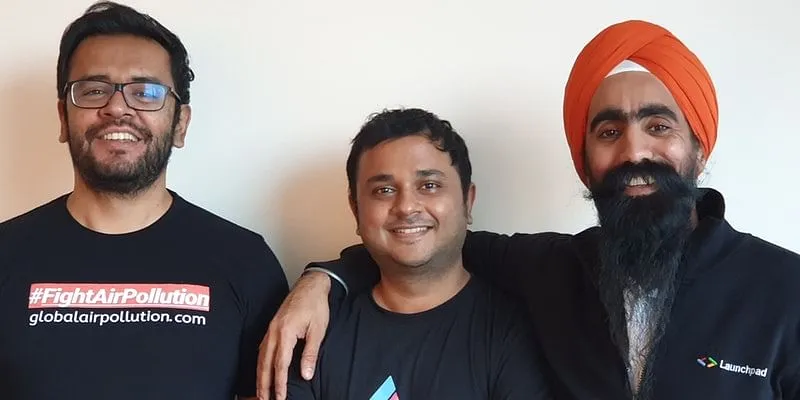
The founding team of Ambee.
Bengaluru-based environment intelligence startup, Ambee, is providing access to all the data and tools to create an ‘environmentally informed society’.
Founded in 2017 by Madhusudhan Anand, Akshay Joshi, and Jaideep Singh Bachher, the startup uses a hybrid model to source air quality data from sensors, open-source government websites, and satellite imagery. This is later analysed and presented on their website and mobile application.
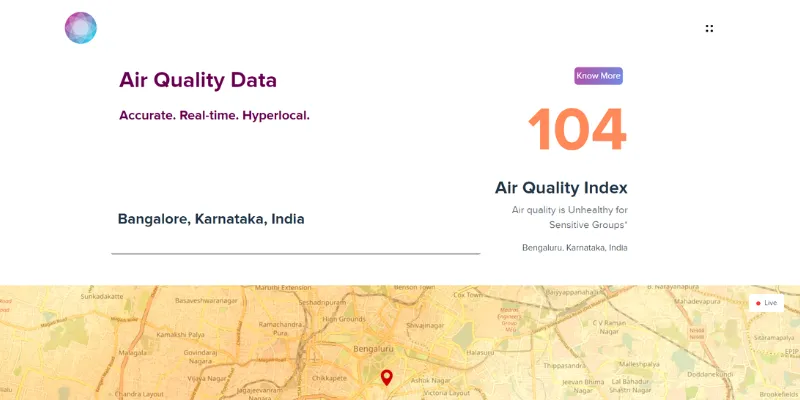
A screenshot from Ambee's website indicating air quality.
“Checking air quality data in and around your city or locality is very essential, especially during a pandemic like this and festive occasions such as Diwali – when pollution levels are expected to rise. Keeping a tab on air quality helps to better understand medical risks, enables resource optimisation, helps cut down health costs, and also facilitates timely decision making,” says Akshay Joshi, Co-founder, Ambee.
Edited by Kanishk Singh








